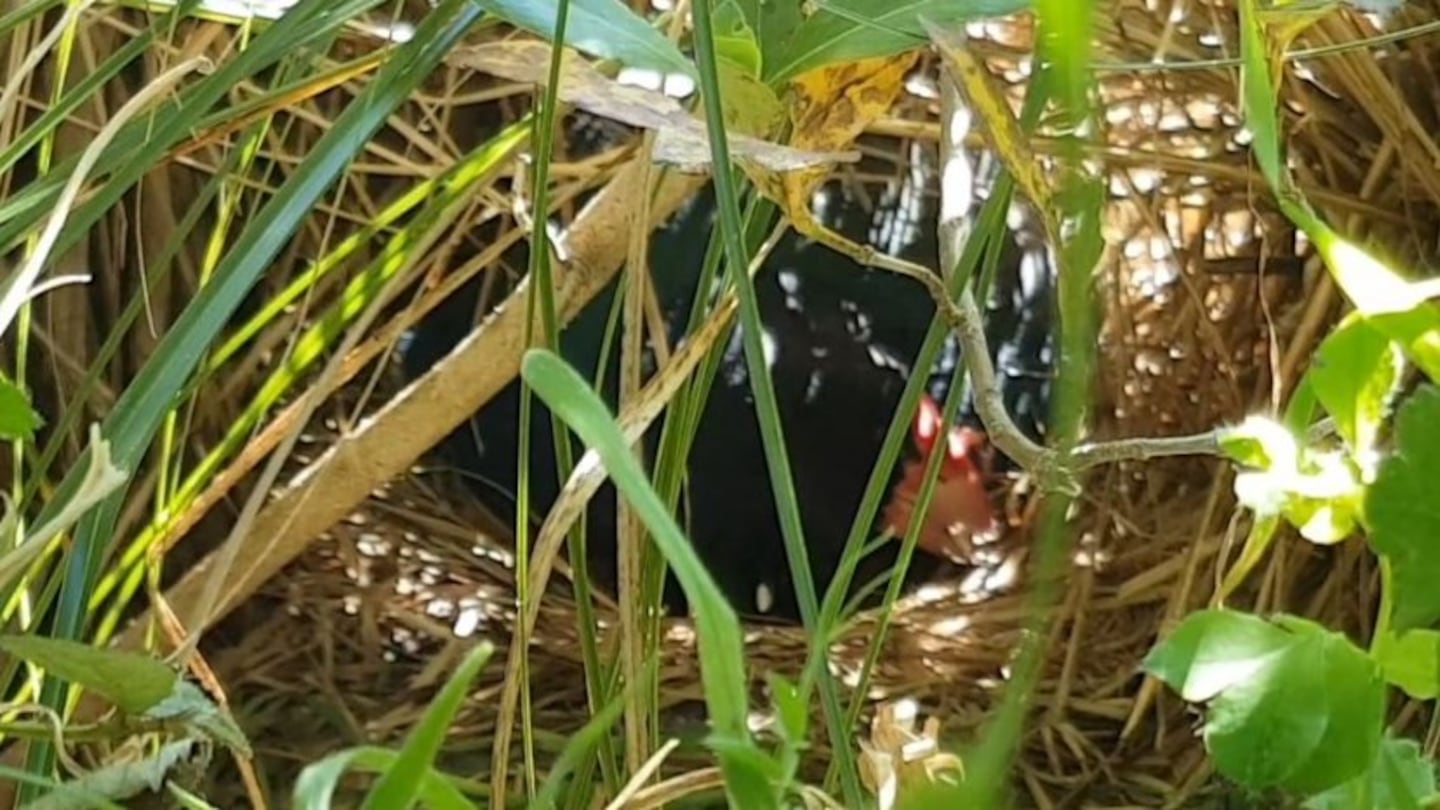A rare takahē chick has hatched at Zealandia wildlife sanctuary in Wellington, with rangers reportedly doing "all they can" to improve its chances of survival.
Zealandia's conservation manager Dr Danielle Shanahan is "delighted" but aware that the chick is still extremely vulnerable.
"We are really excited to have a new addition to our whānau," says Shanahan. "But this is nature and of course, and anything could happen."
While the birds are much safer in predator free environments such as Zealandia, there are still many risks for the chick.
Takahē chicks are vulnerable to wet spring weather conditions, and parents can struggle to find the right food to support them.
"We will be doing all we can to improve the chances that this chick grows into a healthy adult."
Public access to the takahē wetland area will be restricted for a few weeks and supplementary food provided to help the parents feed the youngster.
"We are incredibly lucky to have a huge team of volunteers and staff who are ensuring the parents have access to supplementary food throughout the day," says Shanahan.
The takahē parents were relocated from Mana Island last year to free up space for younger birds.
At Zealandia thepair, named Nio and Orbell, are ambassador birds for their species, providing thousands of visitors with a chance to see one of New Zealand's most endangered and charismatic birds.
About takahē
The takahē was once thought to be extinct, but in 1948 it hit world headlines when an Invercargill doctor, Geoffrey Orbell, rediscovered the bird high in the tussock grasslands of the remote Murchison Mountains, Fiordland.
Today the work of a small dedicated team of Department of Conservation (DOC) takahē rangers is supported and enhanced by iwi, scientists, volunteers and the public and private organisations that provide homes and care for our breeding takahē and those birds now retired from the breeding programme. The Takahē Recovery Programme involves a network of people throughout New Zealand, working together to ensure the takahē is never again 'considered extinct'.
It is estimated there are only around 376 takahē remaining.
About Zealandia:
Zealandia is the world's first fully-fenced urban ecosanctuary, with an extraordinary 500-year vision to restore a Wellington valley's forest and freshwater ecosystems as closely as possible to their pre-human state. The 225 hectare ecosanctuary is a groundbreaking conservation project that has reintroduced 20 species of native wildlife back into the area, some of which were previously absent from mainland New Zealand for over 100 years.

